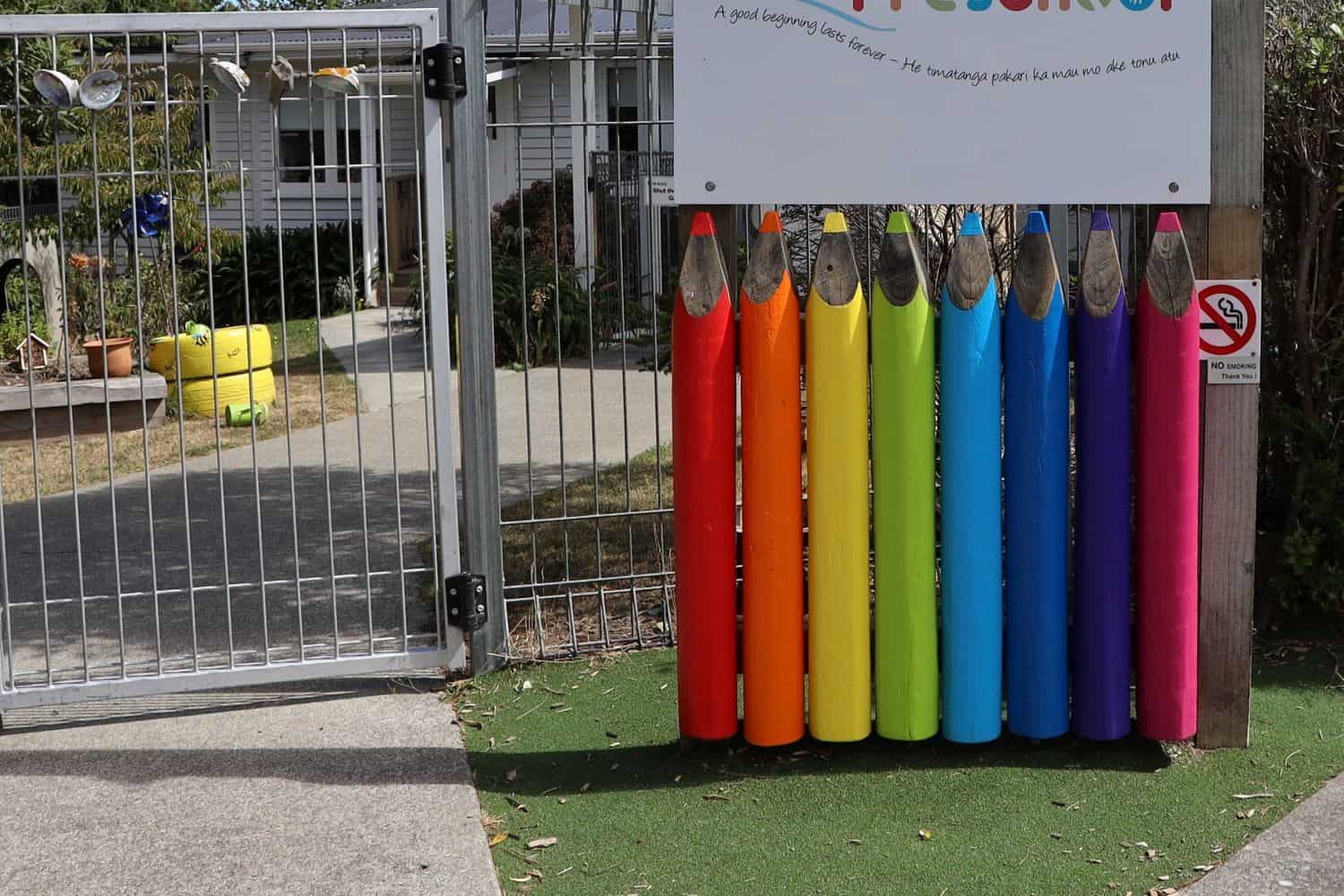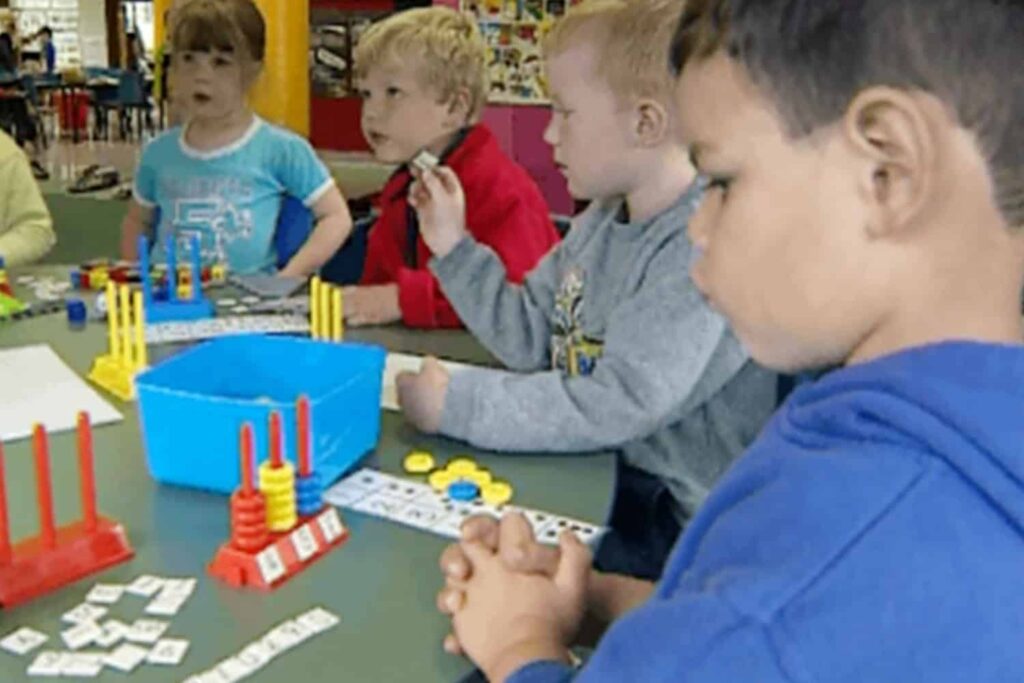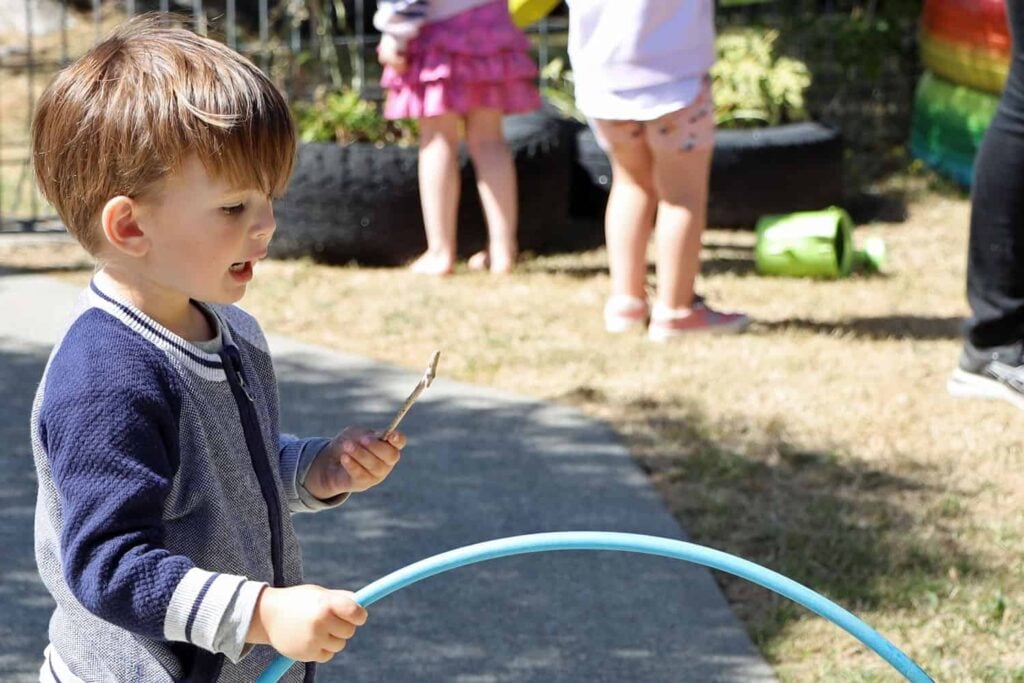Children Who Benefit from ECE and Do Not Benefit – A study of 15,000 children in England.
The Research on Children Who Benefit From ECE
Attending preschool has absolutely no statistically significant effect on children from more advantaged home backgrounds suggesting it is not cost effective for taxpayer funding to go to paying for children from middle and upper-class backgrounds to attend an early childhood programme.
But an early childhood education benefits children from disadvantaged backgrounds in their academic achievement during school years.
This is a key finding from a very comprehensive study of a large cohort of some 15,000 children. The children in the study sample were followed until the age of 21.
The Longitudinal Study of Young People in England (LSYPE) While preschool education is more beneficial for children from low socio-economic backgrounds, the size and significance of the effects decrease over time.
This result is also quite common in the international literature showing that participation in early childhood education can be an effective early intervention to improve the cognitive achievement of children from socio-economically disadvantaged home backgrounds.
The British research, unlike USA research, did not find that preschool education resulted in children being less likely to later engage in risky social and health behaviours such as drug taking and petty crime.
The researchers explain that the results “do not lend strong support for the idea that there are important external effects in later life associated with pre-school participation. The benefits are largely private ones: social benefits associated with health risks and criminal behaviours do not seem to be among the advantages that UK pre-school confers.”
With the benefits of preschool being mainly confined to cognitive benefits for disadvantaged children, and to girls in particular, the study raises the question of why funding for preschool education is not targeted to those children who are most likely to benefit and suggests childcare subsidies and free hours should be means-tested rather than universal.
The contribution of this research to identifying children who benefit from ECE most
The UK’s Early Provision of Pre-School Education (EPPE) study of over three thousand children who attended childcare institutions in the late 1990s looks at outcomes for children up to the age of 14 years only, had a smaller group of around 300 children with no preschool experience, and was largely concerned with quality differentials within the environments of the early education settings.
New evidence is produced by the LSYPE study on preschool effects. It covers a cohort of many more thousands of children and only a few years earlier than the EPPE children so it still has relevancy to policy. Importantly it looks at whether the effect on short term outcomes (beyond 14 years) might ‘fade’. The researchers adopt a matching methodology and extend the EPPE work to include a wide variety of later outcomes. The study investigates the effect of preschool education on adolescent outcomes that are effectively permanent (like final school educational achievement). A wide variety of outcomes are taken into consideration, including measures of cognitive and non-cognitive development, and children are followed until the age of 21. The researchers went to extraordinary lengths to control for confounding variables and reduce the impact of endogenous selection into pre-school using two different ways.
Read more about the study methodology and findings below.
Full reference
Apps, P., Mendolia, S., and Walker, I. (2013, April). The Impact of Pre-school on Adolescents’ Outcomes: Evidence from a Recent English Cohort. Working paper supplied by Professor Ian Walker, Lancaster University Management School, Lancaster, UK.
The following is a summary of the research on children who benefit From ECE as reported in the written paper.
Sample
The study uses data from the LSYPE which is a large scale survey of English adolescents, born in 1989 – 1990 and interviewed for the first time in 2004 at the age of 14. A total of 15,500 young people were interviewed after being selected in a stage sampling procedure to provide sufficient representation of young people in England.
Parents/guardians were also interviewed in subsequent study waves.
The LSYPE can be linked to the National Pupil Database (NPD), a pupil level administrative database which matches pupil and school characteristics data to pupil level attainment and contains detailed information on test scores for all pupils.
A total of 82% of the children had attended preschool. Preschool was defined as a centre-based institution of any kind usually with trained staff and with little or no reliance on parental help. Child-minder and informal arrangements were excluded from the definition. The children were mostly in preschools in the early 1990s which was the beginning of a period characterised by an increasing focus on the provision of education as well as care.
Methodology
The research involved estimation of the causal effect of pre-school education on a range of cognitive and non-cognitive child outcomes for children who attended preschool (the Average Effect of Treatment on the Treated: ATT). The Average Effect of Treatment on Untreated (ATU) was also estimated which is useful for policymakers considering extending the treatment to untreated individuals.
Analysis included using Ordinary Least Squares and Propensity Score Matching. The researchers made extensive use of the information contained in LSYPE and increased the set of independent variables in order to control for wider factors affecting both school outcomes and pre-school attendance. Propensity Score Matching allowed the researchers to compare better a group of children who did not go to pre-school school with observationally similar children who did go to pre-school school, given the independent variables.
Children’s cognitive achievements and test scores were examined at age 11, 14 and 16 and test results in various subjects were also examined. Then children’s intentions to apply for university at age 17, subsequent attendance at university, and economic activity at age 19-20 were examined. The researchers looked into school outcomes in more detail by exploiting information available on children’s attitudes and efforts in school work, psychological well-being, and general happiness of the child at school. Health related behaviours between ages 14 and 20, such as smoking, use of cannabis, and teenage pregnancy were examined too.
A multivariate indicator of socio-economic status was constructed by regressing total family income on mother’s age at birth, education, and marital status. Children classified as “advantaged” (“disadvantaged”) were those who lived in households above (below) the median prediction.
Findings
The test scores of children who are not from disadvantaged home backgrounds are not significantly affected by preschool attendance.
Pre-school attendance is beneficial for disadvantaged children’s academic test scores and for girls in particular. The effects on boys’ test scores are generally not significantly different from zero.
The authors explain: “Girls who went to pre-school school significantly score better in all tests at different ages and in all subjects. This result is consistent with Feinstein et al. (1998) who show that gains from pre-school are less for boys than girls and negative effect on social adjustments are negligible for girls and with Goodman and Sianesi (2005), who show that long-term positive effects of pre-school (i.e. chances of getting a high-degree or wages at 33) are more pronounced for girls. This result is also quite common in the international literature (see for example Anderson, 2008) and may be due to a stronger effect from improved language skills (usually higher in girls), combined with the lower impact of negative behavioural effects (such as aggressiveness, and anti-social behaviours) which are more common in boys.”
Children Who Benefit From ECE
On a range of non-cognitive and economic activity outcomes the effects of preschool attendance were generally insignificant. The exceptions were:
- disadvantaged girls who had attended preschool were more likely to practise sports regularly,
- advantaged boys and girls gained more friends, and
- disadvantaged boys only were more likely to like school and teachers compared to children who had not attended preschool.
There was no significant effect on mental well-being or on problematic behaviours, such as vandalism and school suspension even for disadvantaged children. There were also no effects on petty crime or on risky health behaviours such as smoking and teenage pregnancy.
The authors conclude: “The results broadly support the idea that pre-school prior to compulsory education is particularly beneficial for the cognitive outcomes for children who come from disadvantaged socio-economic backgrounds while the effect on advantaged children, over the various specifications of our model, is largely statistically insignificant. Importantly, we find that non-cognitive outcomes, that seem likely to be the ones that we would normally associate with social benefits, are particularly insensitive to pre-school.”
REFERENCES
Anderson, M. (2008). Multiple Inference and Gender Differences in the Effects of Early Intervention: A Re-evaluation of the Abecedarian, Perry Preschool, and Early Intervention Training Projects. Journal of the American Statistical Association 103, 1481-1495.
Feinstein L., D. Robertson, and J. Symons (1998). Pre-School Education and Attainment in the NCDS and BCS, Centre for Economic Performance, Human Resources Programme. Paper no. 382.
Goodman A., and B. Sianesi (2005). Early Education and Children’s Outcomes: How Long Do the Impacts Last? Fiscal Studies 26, 513-548.









